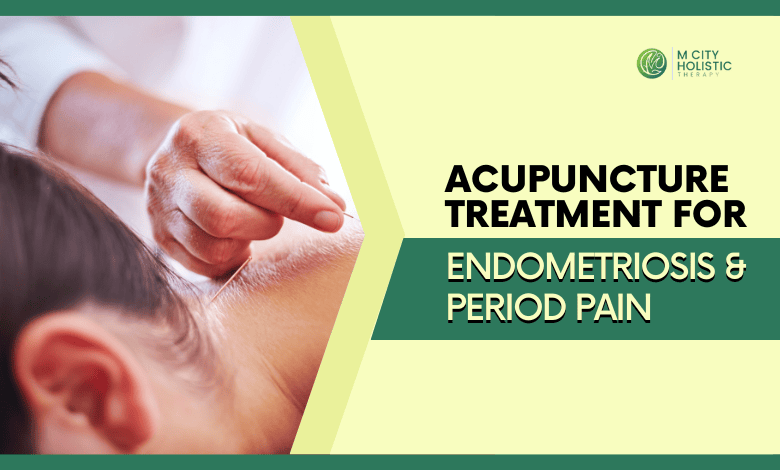Acupuncture Treatment for Endometriosis & Period Pain

Endometriosis is a chronic condition that affects millions of women worldwide, causing severe pelvic pain, menstrual irregularities, and often leading to fertility issues. Among various treatment options available, acupuncture has emerged as a promising complementary therapy. This article delves into the benefits of acupuncture for endometriosis and period pain, providing an in-depth look at how it works, its effectiveness, and what to expect from the treatment.
Understanding Endometriosis and Period Pain
Endometriosis occurs when tissue similar to the lining inside the uterus, called endometrium, starts to grow outside the uterus. This misplaced tissue continues to act as it normally would—thickening, breaking down, and bleeding with each menstrual cycle. However, because this tissue has no way to exit the body, it becomes trapped, leading to inflammation, pain, and the formation of scar tissue.
Common symptoms of endometriosis include:
- Chronic pelvic pain
- Painful periods (dysmenorrhea)
- Pain during intercourse
- Pain with bowel movements or urination
- Excessive bleeding
- Infertility
Period pain, or dysmenorrhea, is another prevalent issue that significantly affects women’s quality of life. While primary dysmenorrhea is common menstrual pain without an underlying condition, secondary dysmenorrhea is often linked to reproductive health issues such as endometriosis.
How Acupuncture Can Help
Acupuncture is a key component of Traditional Chinese Medicine (TCM) that involves the insertion of fine needles into specific points on the body to regulate the flow of Qi (energy) and restore balance. It has been used for thousands of years to treat various ailments, including chronic pain and menstrual disorders.
Mechanism of Action
Acupuncture helps alleviate endometriosis and period pain through several mechanisms:
- Pain Relief: Acupuncture stimulates the release of endorphins, the body’s natural painkillers, and modulates pain signals in the nervous system.
- Anti-Inflammatory Effects: The treatment reduces inflammation by promoting the release of anti-inflammatory mediators.
- Improved Blood Circulation: Acupuncture enhances blood flow to the pelvic area, aiding in the removal of inflammatory substances and reducing pain.
- Hormonal Regulation: The therapy helps balance hormones, reducing menstrual irregularities and alleviating symptoms of endometriosis.
Effectiveness of Acupuncture for Endometriosis and Period Pain
Several studies have highlighted the effectiveness of acupuncture in managing endometriosis-related pain and dysmenorrhea:
- Clinical Trials: Research has shown that acupuncture significantly reduces pain intensity and improves quality of life in women with endometriosis.
- Comparative Studies: Acupuncture has been found to be as effective, if not more, than conventional treatments such as NSAIDs and hormonal therapy for period pain.
- Long-Term Benefits: Regular acupuncture sessions have been associated with sustained pain relief and reduced reliance on pain medications.
What to Expect from Acupuncture Treatment
Initial Consultation
The first step in acupuncture treatment is a thorough consultation with a licensed acupuncturist. During this session, the practitioner will:
- Review Medical History: Discuss your symptoms, menstrual cycle, and any previous treatments.
- Conduct Physical Examination: Examine your abdomen and other relevant areas to identify tender points.
- Develop a Treatment Plan: Based on the findings, the acupuncturist will create a personalized treatment plan tailored to your specific needs.
Treatment Sessions
Acupuncture treatment for endometriosis and period pain typically involves:
- Needle Insertion: Fine needles are inserted into specific acupuncture points on the body, such as the lower abdomen, back, and legs. The needles are usually left in place for 20-30 minutes.
- Additional Therapies: Depending on the treatment plan, the acupuncturist may also use techniques such as moxibustion (burning a herb near the skin), cupping, or electroacupuncture.
- Frequency and Duration: Initially, sessions may be scheduled once or twice a week. As symptoms improve, the frequency may be reduced.
Post-Treatment Care
After an acupuncture session, it is common to feel relaxed and sometimes slightly fatigued. It is recommended to:
- Rest and Hydrate: Drink plenty of water and rest to help your body adjust to the treatment.
- Avoid Strenuous Activities: Give your body time to heal and respond to the acupuncture.
- Monitor Symptoms: Keep track of any changes in your symptoms and discuss them with your acupuncturist during follow-up visits.
Choosing the Right Acupuncturist in Mississauga
Selecting a qualified and experienced acupuncturist is crucial for effective treatment. Here are some tips for finding the right practitioner, especially if you’re located in Mississauga:
- Check Credentials: Ensure the acupuncturist is licensed and certified by a recognized acupuncture board.
- Consider Local Options: Research reputable clinics like M City Holistic Therapy, a well-regarded Mississauga Acupuncture Clinic. Reading online reviews from past patients can also be helpful.
- Ask Questions: Don’t hesitate to ask about the acupuncturist’s experience with treating endometriosis and period pain specifically.
By following these tips, you can increase your chances of finding a qualified acupuncturist who can help you manage your endometriosis and period pain.
Complementary Therapies for Enhanced Results
In addition to acupuncture, several complementary therapies can enhance the management of endometriosis and period pain:
- Herbal Medicine: Traditional Chinese herbs may be prescribed to support the treatment and address hormonal imbalances.
- Diet and Nutrition: A balanced diet rich in anti-inflammatory foods can help reduce symptoms. Avoiding processed foods, sugar, and caffeine is beneficial.
- Exercise and Stress Management: Regular exercise and stress-reduction techniques such as yoga, meditation, and deep breathing exercises can improve overall well-being and reduce pain.
Conclusion
Acupuncture offers a natural and effective approach to managing endometriosis and period pain. By addressing the root causes of these conditions and providing symptomatic relief, acupuncture can significantly improve the quality of life for those affected. Whether used alone or in combination with other treatments, it provides a holistic path to better health and well-being.
Check out more fascinating insights!




